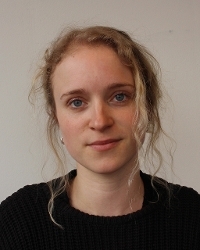Introducing: Teuntje Vosters
In the PhD project of Teuntje Vosters, which started in January 2016, she analyses the history of NGOs and their influence over time. The research question of her project is: to what extend and in what circumstances were NGOs successful in influencing European refugee policy between since 1900?
 The project builds on my master thesis for which I looked at the largest refugee advocacy organisation in the Netherlands; VluchtelingenWerk Nederland (The Dutch Council for Refugees) and the influence it had on policy. My research showed that VluchtelingenWerk Nederland had an impact on refugee policy. Occasionally, they found or created an opening to advocate their claims successfully. Finding a ‘window of opportunity’ was a strategy in the interaction between officials and NGOs. In my PhD project I will enlarge the scope and look at different NGOs in Europe during five key moments in the twentieth century. These key moments are: 1. the creation of the Nansen Passport in 1922 for stateless refugees (mainly) from Russia. 2. The Jewish refugees from Nazi Germany and the Evian conference in 1938. 3. The Refugee Convention in 1951. 4. The Vietnamese refugees in the 1970s and 5. The refugees in the 1990s as a result of the civil war in Yugoslavia. The outcomes of my PhD project will be relevant to current academic debates about policy change and the role of NGOs and civil society in a comparative and long-term historical perspective.
The project builds on my master thesis for which I looked at the largest refugee advocacy organisation in the Netherlands; VluchtelingenWerk Nederland (The Dutch Council for Refugees) and the influence it had on policy. My research showed that VluchtelingenWerk Nederland had an impact on refugee policy. Occasionally, they found or created an opening to advocate their claims successfully. Finding a ‘window of opportunity’ was a strategy in the interaction between officials and NGOs. In my PhD project I will enlarge the scope and look at different NGOs in Europe during five key moments in the twentieth century. These key moments are: 1. the creation of the Nansen Passport in 1922 for stateless refugees (mainly) from Russia. 2. The Jewish refugees from Nazi Germany and the Evian conference in 1938. 3. The Refugee Convention in 1951. 4. The Vietnamese refugees in the 1970s and 5. The refugees in the 1990s as a result of the civil war in Yugoslavia. The outcomes of my PhD project will be relevant to current academic debates about policy change and the role of NGOs and civil society in a comparative and long-term historical perspective.
In 2015, Over 1 million asylum seekers sought protection in the EU. The ‘refugee crisis’ has led to Euro-scepticism and a normative quest for good governance in which civil society - of which Non-Governmental refugee Organisations (NGOs) are the most visible representatives - is allotted a crucial role. In recent decades there has been an explosion in the number of NGOs, and European and national authorities have actively involved NGOs in the drafting of refugee policies. Politicians involve them to gain and enforce the democratic legitimacy of the EU. Rather surprisingly there are not yet any studies that analyse, from a long-term perspective, the effect of this involvement. If NGOs are key players, it is pertinent to know how the interaction between NGOs and policy makers works, and how, when and why it has worked in the past.
I studied European Studies at the University of Amsterdam and did the Migration and Global Interdependence History Masters In Leiden. During my BA and MA, much of my focus centred on refugee-related issues. Previously I worked for a international research and advocacy institute called Transnational Institute and I was an intern at the International Rescue Committee in Oakland.
